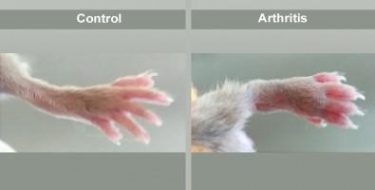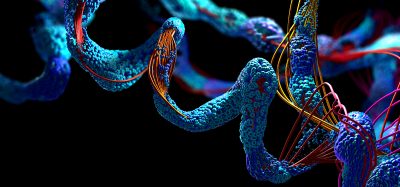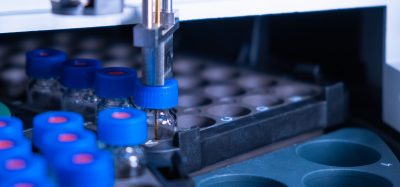Novel molecule effectively treats arthritis in mice, study shows
Posted: 12 August 2020 | Victoria Rees (Drug Target Review) | No comments yet
A molecule called TPPU has been shown to inhibit an enzyme that plays a key role in inflammation, successfully treating arthritis in mice.


A new molecule developed in the laboratory has shown potential therapeutic effects to treat arthritis in mice. The research was conducted at the São Paulo Research Foundation (FAPESP), Brazil.
Tested in mice with genetically induced arthritis, the researchers found their molecule suppressed the inflammatory process, reducing both inflammation and joint tissue wear and tear. Arthritic mice treated with the substance displayed less pain and swelling and had lower clinical scores measuring the extent of the inflammation than untreated arthritic rats.
“The study showed that this new molecule is capable of controlling the most severe manifestations of the disease,” said Marcelo Henrique Napimoga, the principal investigator of the study.
The new molecule, called 1-trifluoromethoxyphenyl-3-(1-propionylpiperidin-4-yl) urea (TPPU), inhibits soluble epoxide hydrolase (sEH), an enzyme that plays a key role in activating inflammatory processes and can lead to chronic inflammation.


Arthritic mouse paw treated with TPPU (left) and untreated paw of another arthritic mouse. The substance decreased the area affected, reduced local swelling, and assuaged the pain associated with the inflammatory process [credit: N.H. Napimoga].
“Our organism naturally produces an anti-inflammatory substance called epoxyeicosatrienoic acid (EET), but sEH converts EET into 1,2-dihydroxyeicosatrienoic acid (DHET), which not only cannot control inflammation but also can have proinflammatory effects. Inhibition of sEH is therefore crucial to the treatment of inflammatory diseases such as rheumatoid arthritis. This is what TPPU does,” Napimoga explained.
According to the researchers, the treatment also reduced the degree of pain associated with inflammation. This was because control of the inflammatory process led to a decrease in the migration of white blood cells to the affected region, not just attenuating the disease but reducing cartilage erosion. The treated group also showed an increase in the number of regulatory T cells, lymphocytes that produce anti-inflammatory cytokines and a decrease in the number of Th17 defence cells, which are highly inflammatory.
TPPU was designed to be well tolerated and easily absorbed when administered orally: “It boosts the body’s natural defences and increases the number of metabolites our organism produces. This is a great advantage over conventional treatments based on large doses of corticosteroids, which have adverse side effects,” Napimoga said. “Besides the excellent anti-inflammatory effect, TPPU also has a strong analgesic effect.”
The findings are published in the Federation of American Societies for Experimental Biology (FASEB).
Related topics
Drug Development, Drug Discovery, Drug Leads, Enzymes, Research & Development, Target Molecule
Related conditions
Arthritis
Related organisations
Sao Paulo Research Foundation – FAPESP
Related people
Marcelo Henrique Napimoga








